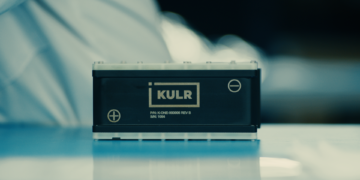Encouraging Data Supports Advancements in Novel Cancer Therapeutics
BCYC (Bicycle Therapeutics) is continuing to make significant strides in the development of its innovative cancer therapies, with recent updates providing encouraging results for its lead programs. These findings highlight the potential of BCYC’s proprietary Bicycle short peptides as a differentiated approach in the oncology space. This progress is particularly evident in its BT8009 and BT5528 programs, which are at the forefront of BCYC’s efforts to develop targeted cancer treatments.
BT8009: A Promising Candidate in Bladder Cancer
BCYC’s lead candidate, BT8009, has shown promising efficacy and safety in ongoing trials, especially in the treatment of metastatic urothelial carcinoma (mUC), a form of bladder cancer. Updated data from the ongoing trial reveal a 45% objective response rate (ORR) among 38 evaluable patients, with a median duration of response (mDOR) of 11.1 months. This compares favorably to Padcev, an existing treatment for mUC, which demonstrated a 44% ORR and a shorter mDOR of 7.6 months.
One of the standout features of BT8009 is its tolerability profile. While Padcev is associated with challenging side effects such as high-grade skin rash, peripheral neuropathy (PN), and alopecia, BT8009 has a much lower incidence of these side effects, particularly in PN. Notably, no grade ≥3 PN has been observed in patients receiving BT8009. This improved safety profile could position BT8009 as a preferable option for patients, particularly in community settings where managing these side effects can be challenging. Moreover, BT8009’s tolerability could enhance patient quality of life, an area where Padcev has shown limited benefit.
BCYC’s management is optimistic about the ongoing Phase 2/3 Duravelo-2 study for BT8009, which is progressing well with new investigators and sites continuously being added. This additional data and the favorable tolerability profile should aid in the continued enrollment of patients. BCYC may provide further updates on this trial, including an interim analysis on dose selection, in 2025.
BT5528: Efficacy Linked to EphA2 Expression
Another exciting development comes from BCYC’s BT5528 program, which is designed to target EphA2, a protein expressed in several types of cancers, including metastatic urothelial carcinoma (mUC). Updated data suggests a strong correlation between EphA2 expression and patient response. Among 14 mUC patients, those who were EphA2-positive had a 43% ORR, while EphA2-negative patients had a 20% ORR, showcasing the importance of patient selection in improving outcomes.
Additionally, the efficacy of the 6.5mg/m2 dosing regimen administered every two weeks (Q2W) appears more promising than the weekly (QW) regimen, with a 45% ORR observed in the expansion cohort. This suggests that achieving a higher peak concentration (Cmax) of the drug may be more critical to its effectiveness. This dosing regimen will be further evaluated, and BCYC has initiated a combination study of BT5528 with nivolumab (nivo), an immune checkpoint inhibitor, with data expected in 2025. The combination of BT5528 with immunotherapy could present a valuable first-line (1L) treatment opportunity for mUC.
BCYC’s Broader Oncology Pipeline
Beyond BT8009 and BT5528, BCYC is advancing other promising candidates within its Bicycle platform. The company’s platform is centered around the development of Bicycle short peptides, a novel therapeutic modality that combines the advantages of biologics and small molecules. These peptides offer high specificity, rapid tissue penetration, and a unique mechanism of action, making them particularly suited for targeting tumors.
BCYC is developing both Bicycle Toxin Conjugates (BTCs) and Tumor-Targeted Immune Cell Agonists (TICAs) for cancer therapy. The clinical-stage candidates in BCYC’s pipeline include BT1718, targeting MT1-MMP, and BT7480, a Nectin-4/CD137 TICA that is currently at the IND-enabling stage. The potential of the Bicycle platform extends beyond oncology, with possible applications in other therapeutic areas.
Looking Ahead: Focus on Execution and Expansion
Moving forward, BCYC’s priorities include the successful execution of its ongoing clinical programs, particularly for BT8009 and BT5528. The company is also advancing its broader BRC (Bicycle-based Radiopharmaceuticals) portfolio and next-generation programs. Updates are expected for BT8009 in additional tumor types, as well as combination data with pembrolizumab (pembro) in 1L mUC, either later this year or in early 2025.
BCYC’s innovative approach continues to generate excitement within the scientific and medical communities, with experts like Dr. Charles Swanton, a member of BCYC’s Scientific and Clinical Advisory Boards, expressing optimism about the platform’s potential beyond bladder cancer, particularly in non-small cell lung cancer (NSCLC).
With its novel therapeutic approach, favorable clinical data, and ongoing advancements, BCYC is well-positioned to make a meaningful impact on cancer treatment, providing hope for patients and fueling the company’s growth in the oncology space.
You might like this article:Intel Secures $3.5 Billion Federal Deal to Boost U.S. Military Chip Production











